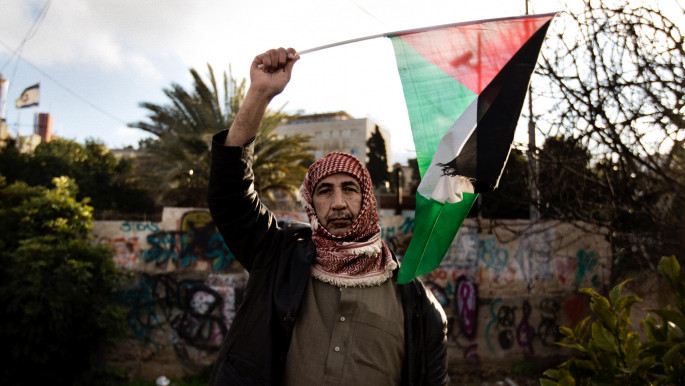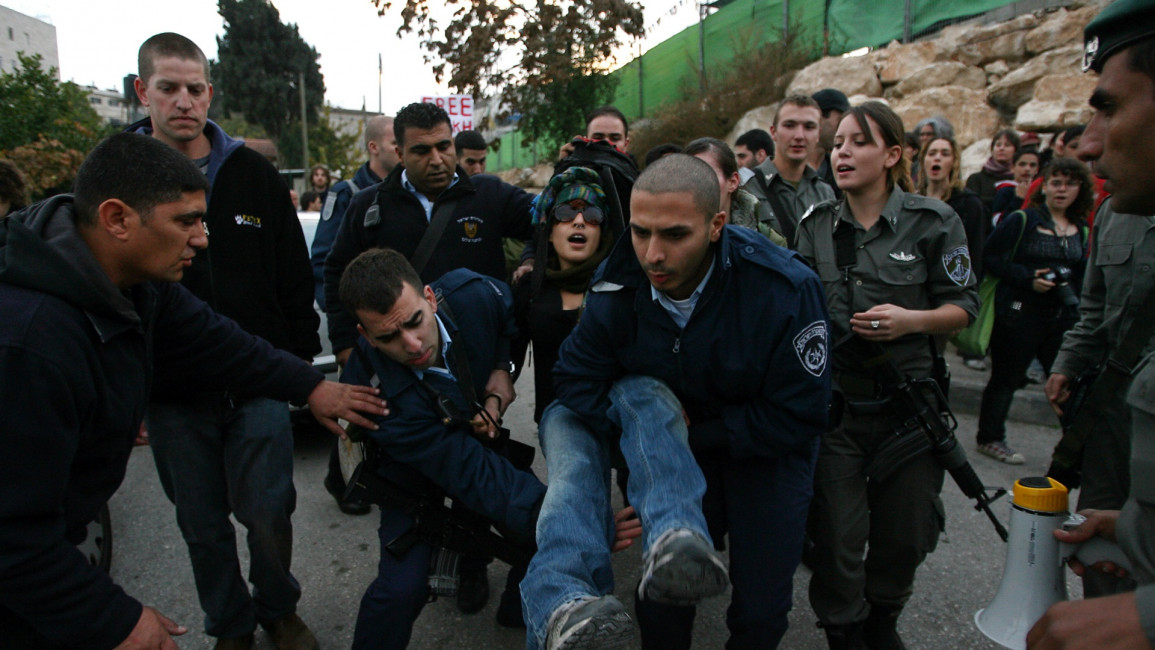After weeks of Palestinian expulsions, US sending envoy unlikely to pressure Israel
Washington DC, The New Arab - Around two weeks after a series of expulsions and demonstrations centred around the East Jerusalem neighbourhood of Sheikh Jarrah, the US is sending an envoy in an attempt to ease tensions.
This comes at a time when the US has still not appointed an ambassador to Israel or a consul to the consulate in Jerusalem. America’s delayed response to escalations in violence in the West Bank, now coupled with fresh Israeli strikes on Gaza that have left more than 100 dead and hundreds wounded – a level not seen since 2014 – has cast doubt on its potential to ease tensions.
“Unless the message is significantly different, I’m not sure this can have much of an effect,” Rashid Khalidi, Middle East history professor at Columbia University, told The New Arab.
He noted that the US has a range of options when it comes to pressuring Israel, such as working through the United Nations Security Council, and invoking international law on Israel’s offensive use of weapons.
On Wednesday morning, Secretary of State Antony Blinken announced that the US would be sending over Hady Amr, Deputy Assistant Secretary for Israeli and Palestinian Affairs in the Bureau of Near Eastern Affairs at the State Department. Though known and respected for his work in the region, he will still be representing the US administration, which so far has not shown any sign that it will put pressure on Israel for its heavy-handed crackdowns on Palestinians.
 |
“Unless the message is significantly different, I’m not sure this can have much of an effect" - Professor Rashid Khalidi, Columbia University |  |
In response to the attacks, disproportionately by Israel, US President Joe Biden said that Israel “has the right to defend itself.”
In a similarly subdued, though more balanced, statement, Blinken said “both sides need to de-escalate.”
While the potential for US diplomatic pressure on Israel is thin, one source of hope for Palestinians and their advocates is a growing public awareness and support for their situation.
 |
| Read more: Fighting the erasure of Palestinian identity |
Viral videos of Palestinian families being pushed out of their homes by settlers, worshippers being attacked by soldiers and an outspoken member of one of the families being expelled for has done interviews with international media, Mohamad al-Kurd, have all brought widespread international awareness to the story.
“It’s hard to say the Palestinians are the bad guys in these scenarios,” said Khalidi.
In addition to more sympathy from the general public, a number of US politicians are also speaking. This week, 25 lawmakers sent a letter to Blinken, saying they were concerned “about Israel’s imminent plan to forcibly displace nearly 2,000 Palestinians in the Jerusalem neighbourhoods of Al-Bustan and Sheikh Jarrah.”
Read more: Is the Labour Party "failing" Palestine?
Ronald Stockton, professor of political science at the University of Michigan-Dearborn, also sees this as a moment of sympathy for Palestinians, though he doesn’t expect that a US response, such as increased aid, to make a significant difference.
“Donations will buy time for a while, but that’s just kicking the can down the road,” he told The New Arab.
Brooke Anderson is The New Arab's correspondent in Washington D.C., covering US and international politics, business and culture.
Follow her on Twitter: @Brookethenews



